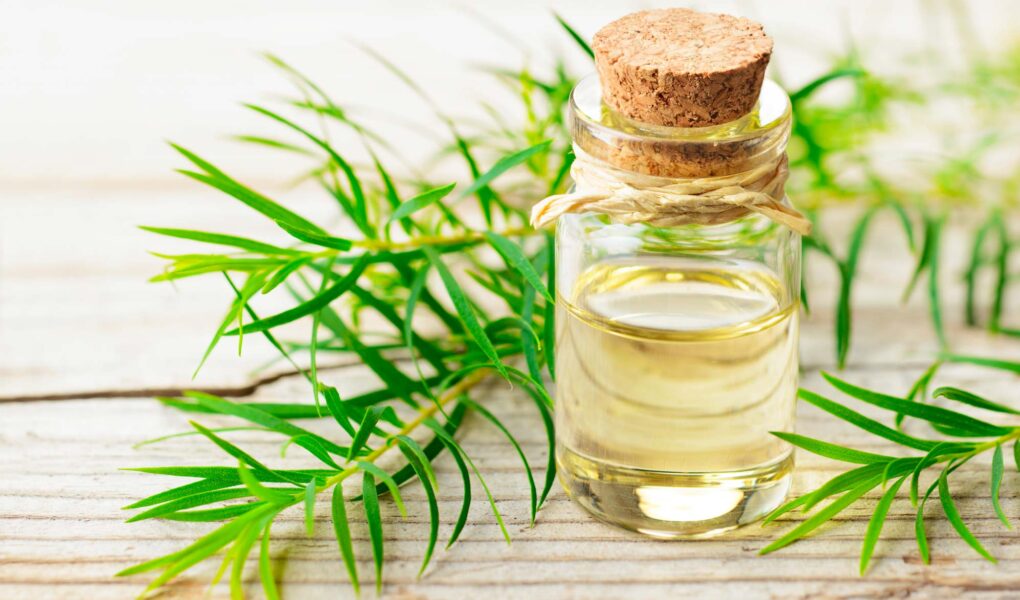In our quest for natural remedies, there’s a little-known powerhouse that has been capturing attention for its remarkable healing properties: tea tree oil. Derived from the leaves of the Melaleuca alternifolia tree native to Australia, this essential oil has been used for centuries by indigenous communities for its potent medicinal qualities. Recently, tea tree oil has gained widespread recognition as a versatile and effective solution for various skin conditions, particularly cold sores and warts.
In this blog, we delve into the fascinating world of tea tree organic oil and uncover the miraculous healing properties that make it an exceptional remedy for cold sores and warts. From its historical roots to its chemical composition and modern-day applications, we’ll explore why tea tree oil has become a go-to solution for those seeking a natural approach to skin ailments.
Benefits of Tea Tree oil for Cold Sores
Table of Contents
Tea tree oil, similar to rosemary oil, with its remarkable healing properties, has gained popularity as a natural remedy for various skin conditions, including cold sores. Here are some of the benefits that make tea tree oil an effective treatment for cold sores:
- Antiviral Properties: Cold sores are caused by the herpes simplex virus, and tea tree oil possesses powerful antiviral properties. It contains terpenes, such as terpinen-4-ol, which have been found to inhibit the growth and spread of viruses, including the herpes simplex virus. Applying tea tree oil directly to cold sores can help combat the viral infection and promote faster healing.
- Anti-inflammatory Effects: Cold sores are often accompanied by inflammation, causing discomfort and pain. Tea tree oil has anti-inflammatory properties that can help reduce swelling, redness, and tenderness associated with cold sores. By soothing inflammation, tea tree oil provides relief and aids in the healing process.
- Antibacterial Benefits: Cold sores can become vulnerable to bacterial infections, prolonging the healing time. Tea tree oil possesses strong antibacterial properties that can help prevent secondary infections by inhibiting the growth of bacteria on the affected area. This promotes a clean and healthy environment for the cold sore to heal.
- Skin Healing and Regeneration: Tea tree oil is known for its ability to promote skin healing and regeneration. It can help speed up the recovery process of cold sores by encouraging the formation of new skin cells and reducing scarring. Additionally, tea tree oil has been found to have a drying effect on cold sores, aiding in the drying and crusting stage, which facilitates faster healing.
- Natural Alternative: Many over-the-counter cold sore treatments contain synthetic ingredients and chemicals. Tea tree oil provides a natural alternative without the potential side effects associated with harsh chemicals. It offers a gentle yet effective solution for those seeking a more natural approach to treating cold sores.
While tea tree oil offers numerous benefits for cold sores, it’s important to note that it should be used with caution. It is highly concentrated and can cause skin irritation if not properly diluted. It’s advisable to dilute tea tree oil with a carrier oil, such as coconut oil or almond oil, before applying it topically. Additionally, it’s recommended to perform a patch test before using tea tree oil on larger areas to ensure there are no adverse reactions.
How To Use
When using tea tree oil for cold sores, it’s essential to follow proper guidelines to ensure safe and effective application. Here’s a step-by-step guide on how to use tea tree oil for cold sores:
- Choose a high-quality tea tree oil: Look for a reputable brand that offers pure, undiluted tea tree oil. Ensure that it is labeled as “Melaleuca alternifolia” or “Tea Tree Oil” to guarantee its authenticity and potency.
- Dilute the tea tree oil: Tea tree oil is highly concentrated and can cause skin irritation if used undiluted. Mix 1-2 drops of tea tree oil with 1 teaspoon of a carrier oil, such as coconut oil or almond oil. This will help minimize the risk of skin sensitivity while still maintaining the oil’s effectiveness.
- Cleanse the affected area: Before applying the tea tree oil, gently cleanse the cold sore and the surrounding skin with mild soap and warm water. Pat the area dry with a clean towel.
- Apply the diluted tea tree oil: Using a cotton swab or a clean fingertip, carefully apply a small amount of the diluted tea tree oil directly onto the cold sore. Ensure that the oil covers the entire sore and a small margin around it.
- Allow the oil to absorb: Let the tea tree oil absorb into the skin for a few minutes before touching or covering the cold sore. Avoid licking or rubbing the area to prevent the spread of the virus.
- Repeat the application: Apply the diluted tea tree oil 2-3 times a day or as needed until the cold sore heals. Remember to wash your hands thoroughly after each application to avoid spreading the infection to other areas.
- Monitor for any adverse reactions: While tea tree oil is generally safe, everyone’s skin reacts differently. Keep an eye out for any signs of irritation or allergic reactions. If you experience redness, itching, or increased discomfort, discontinue use and consult a healthcare professional.
Remember, tea tree oil is not a cure for cold sores but rather a natural remedy to help alleviate symptoms and promote faster healing. If your cold sores persist, worsen, or are accompanied by severe symptoms, it’s important to seek medical advice for appropriate diagnosis and treatment.
By following these guidelines and incorporating tea tree oil into your cold sore care routine, you can harness the potential healing properties of this natural remedy and potentially reduce the duration and discomfort of cold sores.
Conclusion
In conclusion, tea tree oil presents itself as a remarkable natural remedy for cold sores, offering a range of benefits that promote healing and alleviate discomfort. Its antiviral properties help combat the herpes simplex virus responsible for cold sores, while its anti-inflammatory and antibacterial effects aid in reducing inflammation and preventing secondary infections. With its ability to promote skin healing and regeneration, tea tree oil accelerates the recovery process. However, caution should be exercised to dilute the oil properly and monitor for any adverse reactions. By embracing the potential of tea tree oil, individuals can find a soothing and natural solution to manage cold sores effectively.


